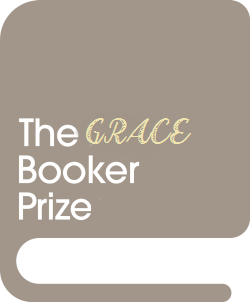It is a truth universally acknowledged that giving to charity is generally a pretty good thing. When you have a bit of spare money, you can part with it safe in the knowledge that it’s going to someone who really needs it (plus, you can bask in that fuzzy feeling you get when you know you’re doing something good, so it’s not totally altruistic). “But Grace!” you say. “Books must permeate every part of my life (obviously). Is there a way that I can give to charity and stay true to my bookish ways?” I am so glad you asked. Here are 5 ways you can incorporate your love of reading into your charitable doings. I google weird shit so you don’t have to.
Donate to a bookish charity!
This is probably the most obvious way to incorporate books into your charity contributions. There are loads of book centric charities you can support, working in the UK or abroad. Two notable ones are Book Trust (http://www.booktrust.org.uk/) who promote reading and education within the UK, and Book Aid International (http://www.bookaid.org/) who send brand new books to communities in need all over the world.
Send books to prisons!
Prison libraries are often understocked and it can be hard for prisoners to access reading material or vital course books that they need to complete educational courses. Books are also a wonderful comfort and means of entertainment and escape, so their value shouldn’t be overlooked and for many they are a vital part of rehabilitation. There are rules and restrictions as to what material can and can’t be sent, and the format that books should be sent in (no hard covers, for example), so it may be worth doing some research before you send anything off. The website http://sendbookstoprisoners.co.uk/ has lots of comprehensive information on donating to prisons, or you could donate money to Haven Distribution UK, a charity working to send prisoners the educational material they need since 1996.
Adopt a book at the British Library!
For a donation of £25 you could adopt a book at the British Library. You can choose from a list of classic titles, such as Jane Eyre and Little Women, and your donation will go towards conservation at the library. Plus, you get a book-jacket gift card. Win.
Take part in the Buy Books for Syria campaign!
Now, in the interest of full disclosure I do work for Waterstones, BUT even if I didn’t this is still a campaign worth getting behind. Waterstones have teamed up with Oxfam and a selection of well known authors (including personal favourites Neil Gaiman and our BELOVED Caitlin Moran) to donate 100% of the cover price of a range of books to Oxfam’s Syria crisis fund. These books will have a Buy Books for Syria sticker on the front and neither Waterstones nor the publisher will see a penny of the money, so it’s a really good way to give money to help refugees while feeding your love of literature. Oxfam also have several charity bookshops throughout the country, so keep an eye out for those.
Volunteer at your local library!
Unfortunately, due to hideous budget cuts and the removal of vital funding, many county libraries in the UK are relying on volunteers to keep their doors open. If you have time, volunteering at your local library could help keep these vital services going, and probably give you some fascinating stories to tell along the way.
So, reader, there you have it! Five bookish ways to do some good and earn you some extra karma points. Come back next week for the result of the Grace Booker Prize. I know you’re all on on the edge of your seats.


Recent Comments